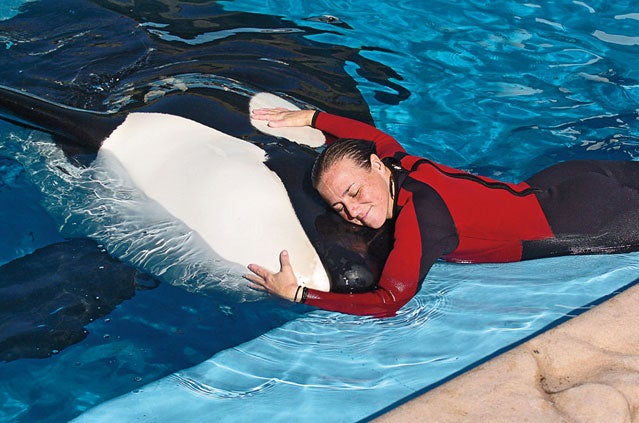A tragedy that shook the marine park industry has resurfaced in the public eye, reigniting debates over the ethics and safety of keeping killer whales in captivity.
The incident — in which a massive orca attacked, bit, and drowned an experienced trainer in front of horrified witnesses — has left a lasting scar on both the victim’s family and the park’s reputation. While officials initially described it as a “tragic accident,” eyewitness accounts and internal reports paint a far more disturbing picture.

A Deadly Encounter
According to multiple witnesses, the trainer was performing a routine session when the whale suddenly lunged, grabbing her and pulling her underwater. Despite frantic rescue attempts, she never resurfaced alive. Experts believe the attack was deliberate, raising serious concerns about the animal’s history and temperament.
It was later revealed that this same orca had been involved in prior aggressive incidents — including one that reportedly resulted in another trainer’s death years earlier.

Will the Whale Stay at the Park?
The park has so far resisted calls to release the whale or retire it to a marine sanctuary, citing “safety protocols” and the animal’s inability to survive in the wild. This stance has outraged animal rights groups, who argue that the whale’s captivity is directly linked to its violent behavior.
Public opinion is sharply divided: some see the orca as an unpredictable predator that should be removed from human contact, while others blame the park’s practices for pushing a highly intelligent and social animal to the breaking point.

Family Speaks Out
The victim’s family, breaking their silence, has demanded accountability from the park’s leadership.
“This wasn’t an accident. This was preventable,” a family member said. “They knew the risks. They knew the history. And they still put her in that water.”
The family is reportedly exploring legal action, with sources suggesting that previously unreleased safety memos and incident logs could become critical evidence.
The Bigger Picture
This tragedy has once again thrust the captivity debate into the spotlight, echoing the fallout from the 2013 documentary Blackfish, which exposed the hidden dangers and ethical controversies surrounding orca performances.
As pressure mounts, the question remains: will the park prioritize profit and spectacle, or will this be the moment it finally reconsiders the future of killer whales in captivity?
For the victim’s loved ones, one thing is certain — no settlement or policy change will undo what happened that day.